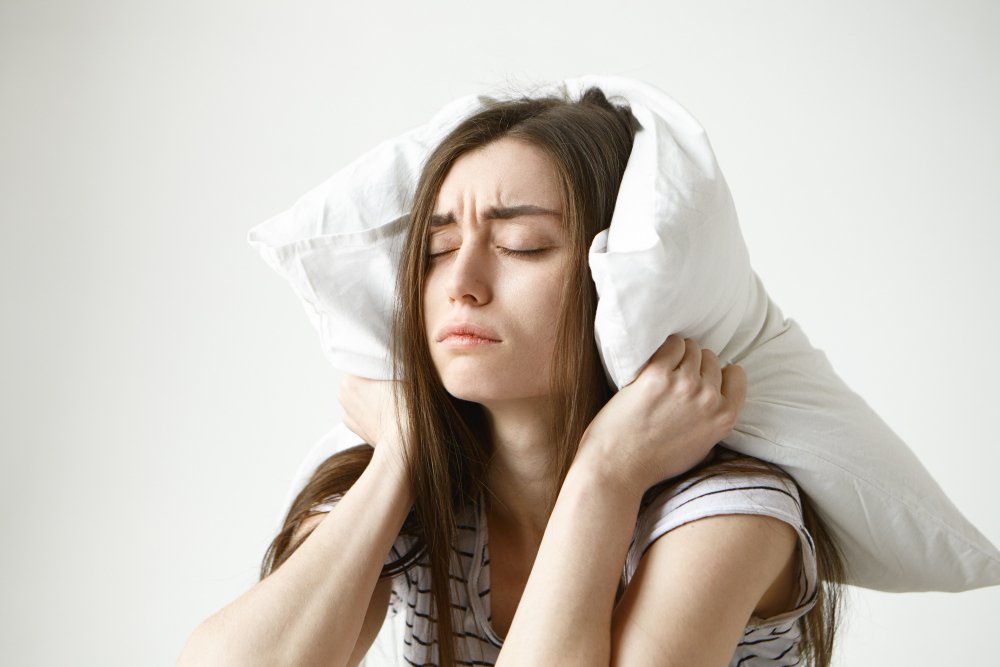Sleepless nights are becoming increasingly common these days. Constant stress, irregular routines, work pressure, and overexposure to screens disrupt the body’s natural sleep cycle, leading to insomnia. Ayurveda offers holistic solutions that address the root causes of sleep disorders, rather than merely suppressing symptoms. Through a combination of herbs, therapies, diet, and lifestyle practices, Ayurvedic treatment for insomnia helps restore balance to the mind and body, ensuring natural, restful sleep.
Understanding Insomnia in Ayurveda
Insomnia is described using terms such as “Anidra,” “Nidranasha,” and “Asvapna” in Ayurvedic literature. It is a condition where an individual experiences difficulty in falling asleep, staying asleep, or getting restorative sleep. This often results in frequent night awakenings, early morning waking, or poor-quality sleep, leaving the person unrested.
In Ayurveda, sleep is considered one of the three pillars of health, along with diet (Ahara) and lifestyle (Brahmacharya). When sleep is disturbed, it not only affects the mind but also the body, leading to various lifestyle-related diseases and reduced working capacity, memory, and concentration.
Although classical texts do not specifically describe the prodromal stage of insomnia, it can be inferred that initial signs may include reduced or disturbed sleep before progressing to a full state of sleeplessness.
Loss of sleep produces a wide range of symptoms, including:
- Angamarda – generalized body ache
- Shirogaurava – heaviness in the head
- Jhimbha – frequent yawning
- Jadyata – laziness or dullness
- Glani – fatigue and low energy
- Bhrama – dizziness or giddiness
- Apakti – indigestion
- Tandra – drowsiness or stupor
According to Acharya Charaka, suppression of the natural urge of sleep leads to yawning, headache, heaviness in the eyes, body ache, and stupor. Most of these manifestations are linked to an aggravation of Vata dosha, which disturbs the balance of the nervous system and causes restlessness of both mind and body. Thus, Ayurveda views insomnia not merely as a sleep disorder but as a dosha imbalance condition, primarily involving Vata and sometimes Pitta dosha.
Read more: Ayurvedic treatment for arthritis
Ayurvedic Therapies for Insomnia Relief
Ayurveda offers a comprehensive approach in treating insomnia by combining herbal formulations, Panchakarma therapies, diet, and lifestyle modifications. These therapies are personalized based on an individual’s constitution and help restore the body’s natural sleep rhythm. Ayurvedic treatment for insomnia also addresses the root causes of insomnia by balancing the doshas, calming the mind, and rejuvenating the nervous system.
The Panchakarma therapies for sleep disorders include:
Shirodhara—Calming the Nervous System
A gentle stream of warm herbal oil poured over the forehead deeply relaxes the nervous system, reduces stress, and promotes natural sleep.
Abhyanga—Oil Massage for Relaxation
A full-body massage with medicated oils reduces muscular tension, calms the mind, and improves blood circulation, encouraging restful sleep.
Nasya—Nasal Therapy for Mind-Body Balance
Medicated oils administered through the nostrils help clear toxins, improve brain function, and reduce anxiety-related insomnia.
Takradhara – Cooling Therapy for Pitta Imbalance
Pouring medicated buttermilk over the forehead soothes Pitta imbalances, reduces heat in the body, and helps regulate sleep cycles.
Padabhyanga – Foot Massage to Induce Sleep
Massaging the soles of the feet with herbal oils activates energy points, reduces fatigue, and naturally induces sound sleep.
Panchakarma Detox for Better Sleep
Detoxification therapy eliminates accumulated toxins, balances doshas, and supports long-term relief from chronic insomnia.
Herbal Steam & Aromatherapy
Steam infused with calming herbs such as camphor, tulsi, and lavender relieves tension and relaxes the body.
Marma Therapy for Stress Reduction
Gentle stimulation of vital energy points (Marmas) releases blocked energy, reduces stress, and harmonizes the mind for peaceful sleep.
Read more: Ayurvedic treatment for joint pain
Ayurvedic Medicines & Herbs for Better Sleep
Ayurveda prescribes a variety of herbal medicines and natural formulations that work gently to calm the nervous system, reduce stress, and promote deep, restorative sleep. The Ayurvedic medicines for good sleep include:
Ashwagandha—Reduces Stress & Anxiety
Ashwagandha is widely recognized for its adaptogenic and calming properties, making it one of the best herbs for insomnia and anxiety. Research shows that compounds such as triethylene glycol (TEG) found in ashwagandha extract can help promote sleep by increasing non-REM sleep cycles and reducing wakefulness.
Brahmi—Improves Sleep Quality & Calms the Mind
Brahmi is an adaptogenic herb that supports the body in managing stress by naturally lowering cortisol levels. It helps ease restlessness and promotes better sleep quality. By enhancing serotonin activity, Brahmi uplifts mood and supports deeper, more restorative sleep cycles. Its strong antioxidant properties protect the brain from oxidative stress, reducing mental fatigue and improving relaxation. Additionally, Brahmi helps regulate the sleep-wake cycle, making it especially beneficial for individuals struggling with irregular sleep patterns.
Jatamansi—Herbal Sedative for Deep Sleep
Jatamansi is highly regarded for its calming and sleep-inducing properties, making it an effective herb for insomnia and restlessness. Research indicates that its bioactive compounds may influence GABA pathways in the brain, helping to reduce anxiety, quiet the mind, and promote deeper, restorative sleep.
Tagara—Natural Tranquilizer for Insomnia
Tagara, known as Indian valerian, is a powerful Ayurvedic herb for insomnia and anxiety due to its natural sedative properties. Active compounds like valeranone and valepotriates help enhance GABA activity in the brain by preventing its breakdown, leading to improved relaxation, reduced restlessness, and significant improvement in sleep quality.
Shankhpushpi—Improves Mental Relaxation
Shankhpushpi is known for its ability to calm the mind, reduce anxiety, and ease mental fatigue. It promotes a sense of peace and supports sound, restful sleep by modulating brain neurochemistry. Regular use helps lower stress levels and improves overall mental relaxation, making it beneficial for insomnia linked to anxiety and overthinking.
Diet & Lifestyle for Better Sleep (Ahara & Vihara)
Diet Recommendations for Better Sleep
Foods to Include:
- Sastika Shali (rice) and Godhuma (wheat)
- Guda (jaggery)
- Mamsa Rasa (meat soup) and Matsya (fish)
- Sita (sugar) in moderation for calming effect
- Sneha (ghee and oils)
- Tila (sesame) and Ikshu Rasa (sugarcane juice)
- Warm milk, especially buffalo milk, at bedtime to induce natural sleep
- Simple, light, and nutritious meals, taken on time
- Dinner at least 2 hours before bedtime to ensure proper digestion
Foods to Avoid:
- Tea, coffee, and alcohol
- Tobacco (smoking or chewing)
- Excessive chocolates and cold drinks
- Katu (pungent), Tikshna (sharp), and Rukshya (dry) foods (e.g., barley)
- Overly spicy food items
- Processed and fast foods such as noodles, chips, and biscuits
Lifestyle Recommendations for Better Sleep
Lifestyle to Include:
- Keep the bed comfortable and suitable to season and surroundings
- Practice positive thinking and maintain a calm, relaxed attitude
- Take a gentle walk after dinner to aid digestion
- Perform head and foot massage with warm oil for relaxation
- Maintain regular timings for food and sleep each day
- Spend time with good friends and loved ones for emotional balance
- Wash feet with warm water before bed
- Practice beneficial yoga postures like Padmasana, Gomukhasana, and Shavasana to relax body and mind
Lifestyles to Avoid:
- Sleeping during the day and staying awake late at night
- Following an irregular or hectic daily routine
- Overexertion and aggressive behavior
- Sitting for long hours in front of mobile phones, TVs, or computers
- Using an improper bed that disturbs posture and comfort
- Having irregular timings of sleep and meals
Ayurvedic Treatment for Insomnia in Kerala
At Back to Roots Ayurveda, Ayurvedic treatment in Kerala for insomnia offers a holistic approach to restore the natural rhythm of sleep by addressing the underlying imbalances of the mind and body. Our expert Ayurvedic doctors carefully assess your Prakriti (body constitution) and identify dosha imbalances to create a personalized treatment plan. Each treatment plan is customized, combining therapies, herbal remedies, and lifestyle guidance to ensure long-lasting results. Benefits include:
- Natural and herbal remedies for insomnia and anxiety
- Safe and non-addictive
- Stress reduction and nervous system relaxation
- Detoxification and dosha balancing with Panchakarma
- Calms overactive thoughts and promotes deep, restful sleep
- Improves concentration, energy, and overall mental clarity
- Enhances emotional balance and long-term well-being
By addressing the root causes of insomnia through herbal medicines, calming oil therapies, Panchakarma, and lifestyle corrections, Ayurveda helps restore balance, calm the mind, and support natural, restful sleep.
Whether you are struggling with chronic insomnia, stress-induced sleeplessness, or irregular sleep patterns, our goal is to help you wake up refreshed and energized. Book your consultation today at Back to Roots Ayurvedic Clinic and experience healing at our Ayurvedic retreat in Kerala.
FAQs
1. How long does Ayurvedic treatment take for insomnia?
Relief can begin within a few weeks, but complete recovery may take 2–3 months depending on the severity and underlying causes.
2. Which Ayurvedic herb works fastest for sleep?
Ashwagandha, Tagara, Brahmi, and Shankupusphi are commonly prescribed for quick relief from sleeplessness and stress-related insomnia. Always consult an Ayurvedic physician before consuming Ayurvedic formulations.
3. Can I take Ayurvedic medicine with allopathic sleeping pills?
Combining Ayurvedic medicine with allopathic sleeping pills should be done only under the guidance of a qualified doctor to avoid interactions.
4. How to cure insomnia in Ayurveda?
A combination of herbal formulations, Panchakarma therapies, diet, and lifestyle changes helps manage insomnia.
5. What is the permanent cure for insomnia?
Ayurveda aims at long-term balance of doshas and mind-body harmony, thus providing long-term relief from insomnia.
6. What is the best natural treatment for insomnia?
Shirodhara, abhyanga, takradhara, padabhyanga, and meditation practices are among the most effective natural remedies for insomnia.
7. What is the main cause of insomnia?
In Ayurveda, insomnia is mainly caused by Vata and Pitta imbalance, stress, poor diet, and irregular routines.







